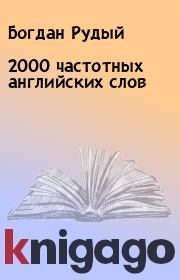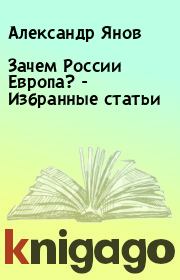Александр Янов - The Russian challenge and the year 2000
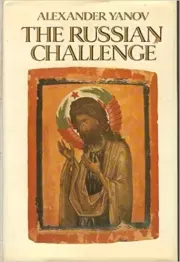 | Название: | The Russian challenge and the year 2000 |
Автор: | Александр Янов | |
Жанр: | Старинная литература | |
Изадано в серии: | неизвестно | |
Издательство: | неизвестно | |
Год издания: | 1985 | |
ISBN: | неизвестно | |
Отзывы: | Комментировать | |
Рейтинг: | ||
Поделись книгой с друзьями! Помощь сайту: донат на оплату сервера | ||
Краткое содержание книги "The Russian challenge and the year 2000"
Argues that the West must support the Soviet Union's emergence from political and cultural isolation in order to prevent the rise to power of Russian fascism
Читаем онлайн "The Russian challenge and the year 2000". [Страница - 4]
That is how the world looked at the end ot the 1970s and early 1980s through the eyes of the American press — both popular and intellectual. Who would have been interested in a book about the emergence of Bolshevism in Russia, say, in 1911, at the time of the Balkan crisis that eventually led to World War I? Ironically, it was the Shakespearian passions boiling in the Amencan press that were irrelevant; no Shakespearian tragedy was taking place in the world and none was foreseen. What was happening bore as much resemblance to the Balkan crisis as a gentle autumnal shower does to a typhoon. In fact, nothing was threatening humarkind in those years But if one wants to speak of threats, then the revival of Russian imperial nationalism was a hundred tunes more dangerous than Soviet adventures in Africa. But. in order to understand this, one had to have a much deeper and more sensitive conception of how the Russian political system functions than the familiar totalitarian stereotypes and cliches of American politic.ans and academics would allow. Despite the hundreds of books and thousands of arf'cles written about Soviet politics in the postwar decades, they proved unprepared for a new turn in relations between the superpowers. Why?
The answer to this question is far beyond the purview of a book about the resurrection of imperial nationalism n Russia Yet the subject presents us with a chance to examine this question in greater detail and at least to try to offer a hypothetical answer
The Battle of Metaphors
Let's first take an overview of the intellectual confrontation at the time. The prognosis of Senator Daniel Patrick Movnihan was, m effect, that once having placed Europe on its knees ('Fuilandized' it) and isolated the United States, Russia intended to undertake a fateful assault on the Persian Gulf: 'The short run looks good [for the USSR], the long run bad Therefore move. It was the calculation the Austro- Hungarian Empire made in 1914.'3 Movnihan's Austro-Hunganan metaphor was opposed by another, suggested by Norman Podhoretz, the editor of Commentary. 'The Soviet Union is similar in character to Nazi Germany: a revolutionary totalitarian power bent on establishing a new world order in which it would enjoy hegemony.'4 Out of this naturally followed an unambiguous prognosis world war is inevitable and therefore negotiations senseless; 'appeasement' is criminal; the policy of detente is tantamount to the Munich agreement. For those who accepted the German analogy, t. was hard to escape its logical conclusion. Thus Frank R. Burnett asserted that, 'The U.S. today is about where Britain was in 1938 witn the shadow of И tier's Germany darken' lg all over Europe.'5
Practically the whole intellectual debate in America at that time was reducible to the conflict between these two positions. As James Fallows explained later, 'The fundamental intellectual d ference between the sides is the historical prism through which their perceptions are bent. When the berals look at the 1980s, some of them see 1914. When the conservatives look it the 1980s, nearly all of them see 1938/6
I will return once again to this debate n my conclusion. Suff1 ce it to say, here, that in principle the outcome of this struggle did not change the apocalyptic mood of those years: both the 1914 and the 1938 comparisons signified the terrible mminence of a final world conflict — between Russia and the West, between Commur sm and anti- Communism. The fatal 'window of vulnerab ty' was supposed to open up sometime in the mid-1980s As always, this apocalyptic mood was expressed at its most extreme by the Russian emigre press. Each minute we live,' wrote Alexander Solzhenitsyn, 'no fewer than one country (sometimes two or three at once) is gnawed away by the teeth of totalitarianism. This process never ceases and has already been going on for almost forty years. . . . Each minute we live, somewhere on earth one, two, or three countries are b ng freshly ground up by the teeth of totalitarianism. . . . The Commur sts are already on the march everywhere — in Western Europe, and in America. And all today's distant viewers will soon be able to see it all w ithout a television set, and then they will feel it personally — but only after they've already been swallowed.'7
If we estimate the number of minutes in forty years as roughly twenty million and the number of countries as 150, then, arithmetically speaking, each country in the world has already been 'gnawed away' and even 'freshly ground up' by the Communists at least 133,333 times. But few care about emigre arithmetic when speeches such as the following are made on the floor of the US Senate. 'I guess Ronald Reagan is a warmonger just like V\ nston Churchill. . . . And we can find lots of examples of Neville Chamberlains, the appeasers of this world who never seem to learn the lessons of history (Jake Garn of Utah); or: 'Don't tell me there is no lesson to be learned there' (John Tower, Texas).8
Russia s Historical Choice
Just one detail was omitted from this impassioned debate in which the lessons of German (or Austro-Hungarian) history were discussed, the lessons ot Russian history. For this reason alone the examples cited were academic to the questions that really mattered. Had the senators followed their own advice and turned to the only history whose lessons are essential for a proper understanding of Soviet behaviour in world politics at the end of the 1970s, the picture perceived by them would probably have been different. In The Russian New Right I tried to sketch out this picture, tracing the long-term patterns of Rassian political change over the last half-millenium, since the time when Russia became a nation-state.
According to this perception, the degree of Rassia s aggressiveness and expansionism in world politics generally depends not so much on tne character of the dominant ideology (as the stereotype holds) as on the character of a particular regime. The tsarist dcologies of Russia as the Third Rome' or 'Orthodoxy. Autocracy and Nationality' did not prevent Russia from being transformed ^to a gigantic empire occupying one-sixth of the earih's land surface, any more than the Communist ideology hindered Nikita Khrushchev from curtailing territorial expansion.9 The Soviet government of the 1970s, which overturned Khrushchev's regime of reform but was not prepared to pass the whole way into becoming a regime of counter-reform, represented, according to this picture, merely a temporary and transitional regime of political stagnation. In this sense, and only in this sense, was it reminiscent (if we must draw analogies with other countries) of the Weimar Republic. It could have led Russia into a new counter-reform or into a new reform, but ч was 'ncapable of leading it into an all-out confrontation with the West. Historically, the only thing such a regime has been able to accomplish is to steer the nation into a
--">Книги схожие с «The Russian challenge and the year 2000» по жанру, серии, автору или названию:
| David Remnick - A Year of Putin’s Wartime Lies Жанр: Старинная литература Год издания: 101 |
Другие книги автора «Александр Янов»:
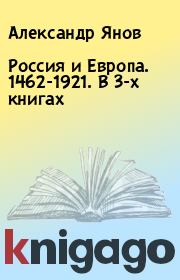 |
| Александр Янов - Россия и Европа. 1462-1921. В 3-х книгах Жанр: Публицистика Год издания: 2008 |
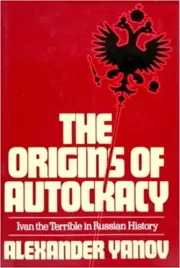 |
| Александр Янов - The Origins of Autocracy Жанр: Старинная литература Год издания: 1981 |
 |
| Александр Янов - The Russian challenge and the year 2000 Жанр: Старинная литература Год издания: 1985 |


